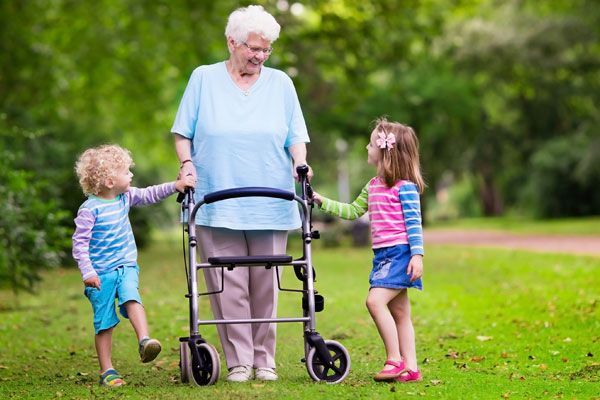The 9 Best Activities for Seniors with Limited Mobility
Limited mobility can be a source of great stress and pain for some seniors, but it doesn’t have to signal the end of a fun, exciting, and interesting life! In fact, there are plenty of engaging activities that seniors don’t need much movement to enjoy.
If you are struggling to find activities for your mobility-impaired senior, try some of these options to mix into their daily life.
1) Enjoying Nature
You don’t have to walk three miles or hike a mountain to enjoy the benefits of nature. Simply basking in the sun or sitting by a large picture window is enough to reap some of nature’s positive effects. Research has repeatedly shown that enjoying nature can reduce stress and elevate mood.
If your senior is wheelchair-bound, wheel them near a large window so that they can enjoy the birds, insects and flowers. If there is a porch available, they may enjoy sunning themselves while reading a book. And if they’re able to, they may enjoy a ride around the park to get some fresh air.
2) Art and Creativity
Just as kindergarten teachers use finger painting to stimulate young minds, your senior will benefit from fun and creative activities such as drawing with crayons or markers.
As an enrichment activity, you can sit with them and both draw flowers and birds, then hang the results on the wall. Or you can experiment with a variety of media, like construction paper, markers, and finger paint to create “abstract art.” Engaging in creative activities improves one’s mood and reduces stress without needing much movement.
3) Knitting and Crochet
Keep your senior’s hands active! If they don’t have arthritis, knitting and crocheting is the perfect way to keep them sharp. From learning patterns to figuring out how to create scarves and socks, many seniors will welcome the soothing nature of this activity —and enjoy making things for their family.
4) Exercise
You don’t need a full range of mobility to get the health benefits and happiness that exercise provides. If your senior is wheelchair bound, look up “chair yoga” or “yoga for seniors.” There is a wide variety of yoga available for people from all walks of life, ranging from people with arthritis to people with hip immobility. Consistent yoga practice reduces stress, improves muscle tone and elevates mood.
5) Have Friendly Visitors
Improve sociability by having visitors stop by to chat! Depending on how active your senior may be, they could get a boost from being around friendly pets or younger children. Having different visitors stop by can considerably brighten their mood in almost an instant!
6) Organize Scrapbooks
If your senior has a loose collection of family photographs, encourage them to begin organizing their memories into a beautiful scrapbook. Organizing a scrapbook can help them relive the good old days, while also giving them a sense of accomplishment at creating something.
7) Bake and Cook
Does your senior love to bake and cook? Give them a hand in the kitchen — you might be surprised how delicious the results are. From bread and cookies to healthier options, cooking and baking can improve mood and lower stress.
8) Enjoy Music
The healing power of music can’t be overstated. It doesn’t take much mobility to listen to and enjoy your seniors’ favorite music together. They may feel moved to sing along, which can break up their day and add to their sense of wellbeing.
9) Reading
Whether it’s a cozy mystery novel or a non-fiction book, reading is one of the best ways to keep your seniors’ brain active, decrease cognitive decline, and help them stay sharp. You may even want to form a seniors’ book-club. Then, seniors can get the benefits of socializing and reading!












